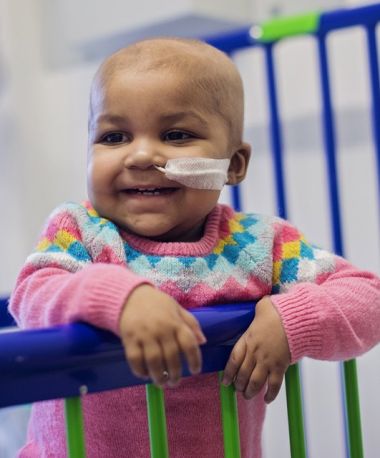Medical milestone: 'Hopeless' baby girl with leukaemia now cancer-free after experimental gene therapy

In what could be considered a landmark achievement in gene engineering, a British baby girl with leukaemia has become the first successful recipient of designer immune cells to reverse her condition, a report by the Medical Express said.
Layla Richards was only three months old when she was diagnosed with acute lymphoblastic leukaemia (ALL), a condition that is characterised by the production of immature white blood cells by the bone marrow.
Doctors had reportedly given up hope of saving her and even told the parents to consider palliative end-of-life care after she failed to respond to chemotherapy and a bone marrow transplant.
But in a twist of faith, the Great Ormond Street Hospital (GOSH) in central London offered the family an experimental treatment that contains genetically-modified cells to manipulate cells to fight the disease. The process goes with modification of the white blood cells from a healthy donor so they seek out and kill drug-resistant leukaemia.
After two months of therapy, Layla is now believed to be cancer-free. She has been discharged from the hospital and doing fine at home, the report said.
"As this was the first time that the treatment had been used, we didn't know if or when it would work, and so we were over the moon when it did," said Professor Paul Veys, director of bone marrow transplant at GOSH and Layla's head doctor.
"Her leukaemia was so aggressive that such a response is almost a miracle," Veys added.
GOSH confirmed that Layla is the first human ever to receive the treatment and has shown promising results.
But doctors at GOSH clarified they are not claiming that designer cells are treatment option to leukaemia or other forms of cancer in children.
"We have only used this treatment on one very strong little girl, and we have to be cautious about claiming that this will be a suitable treatment option for all children," said Waseem Qasim, professor of cell and gene therapy at the Institute of Child Health and consultant immunologist at GOSH.
"But this is a landmark in the use of new gene engineering technology and the effects for this child have been staggering," he added.
"If replicated, it could represent a huge step forward in treating leukaemia and other cancers."











